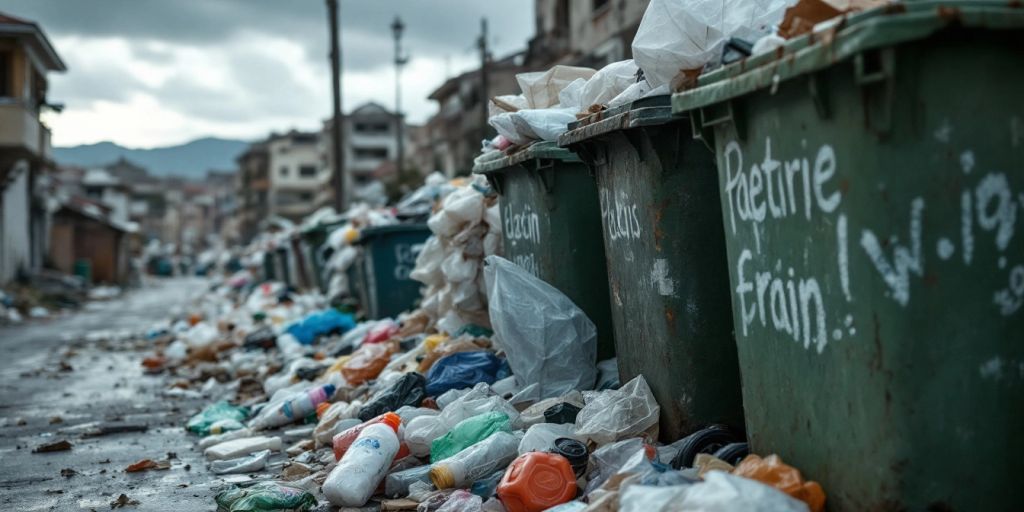Every day, residents in the Balkans face the dire consequences of inadequate waste management, with toxic landfills posing significant health risks. In Kosovo, Albania, and Montenegro, overflowing landfills and pollution threaten both the environment and public health, prompting urgent calls for action from local communities and international bodies.
Key Takeaways
- Kosovo’s Mirash landfill is a major environmental hazard, receiving 160,000 metric tons of waste annually.
- Albania struggles with corruption in waste management, delaying the construction of incinerators.
- Montenegro’s Mostina landfill is linked to rising cancer rates among local residents.
The Situation In Kosovo
Srdjan Milic, a 72-year-old resident of Palaj, Kosovo, lives in close proximity to the Mirash landfill, which has become a source of constant worry for him and his neighbors. The landfill, established in 2006, is situated in a former coal pit and is prone to flooding, exacerbating the already critical sewage issues.
The Public Company for Waste Landfill Management (KMDK) has warned that the site poses a permanent risk to the environment and human health. Despite repeated calls from the European Union for Kosovo to close and clean up the landfill, no concrete plans have been presented by the government.
Waste Management Challenges Across The Region
The waste management crisis is not limited to Kosovo. Neighboring Albania and Montenegro face similar challenges:
- Albania: The country has plans to build incinerators to manage waste and generate energy, but corruption has stalled progress. Currently, only one incinerator is operational, while the others remain as landfills.
- Montenegro: Despite declaring itself an ecological state, Montenegro struggles with waste management. The Mostina landfill has been linked to increased cancer rates, raising concerns among local residents and health professionals.
Environmental Impact And Health Risks
The environmental impact of these landfills is severe. In Kosovo, nearly 400 illegal waste sites exist, and the country ranks poorly in household waste separation. In Albania, rivers like the Ishem are heavily polluted, affecting local agriculture and fisheries. In Montenegro, the Mostina landfill has been a source of toxic smoke and health issues for years.
Local activists and residents are increasingly vocal about the need for change. In Albania, environmentalist Lulzim Baumann has initiated a recycling project to address the plastic waste in the Ishem River, while in Montenegro, Denis Muric has filed a lawsuit against officials for mismanagement of the Mostina landfill.
The Path Forward
As the European Union sets ambitious recycling targets for its member states, Kosovo, Albania, and Montenegro must take significant steps to improve their waste management practices. This includes:
- Closing and Remediating Hazardous Landfills: Immediate action is needed to address the health risks posed by sites like Mirash and Mostina.
- Implementing Effective Recycling Programs: Increasing public awareness and participation in recycling can help reduce waste.
- Strengthening Regulations and Oversight: Governments must combat corruption and ensure that waste management projects are executed transparently and effectively.
The ticking trash time bomb in the Balkans serves as a stark reminder of the urgent need for comprehensive waste management solutions to protect both the environment and public health.
Sources
- The Ticking Trash Time Bomb In The Balkans, Radio Free Europe/Radio Liberty.

